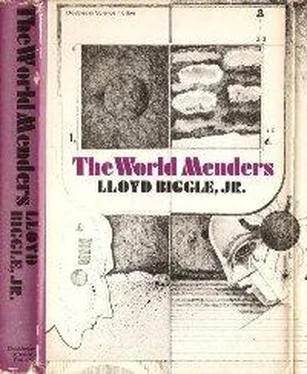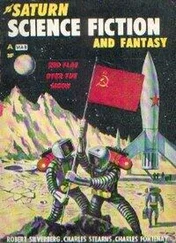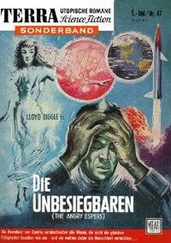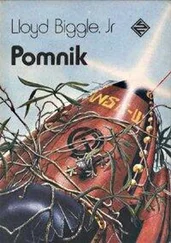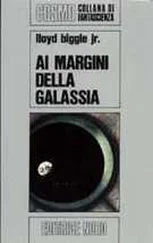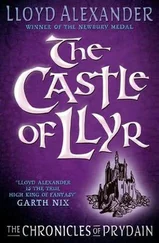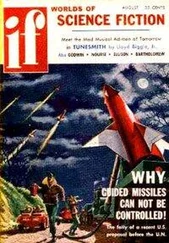Lloyd Biggle Jr. - The World Menders
Здесь есть возможность читать онлайн «Lloyd Biggle Jr. - The World Menders» весь текст электронной книги совершенно бесплатно (целиком полную версию без сокращений). В некоторых случаях можно слушать аудио, скачать через торрент в формате fb2 и присутствует краткое содержание. Год выпуска: 1971, Издательство: Doubleday, Жанр: Фантастика и фэнтези, на английском языке. Описание произведения, (предисловие) а так же отзывы посетителей доступны на портале библиотеки ЛибКат.
- Название:The World Menders
- Автор:
- Издательство:Doubleday
- Жанр:
- Год:1971
- ISBN:нет данных
- Рейтинг книги:5 / 5. Голосов: 1
-
Избранное:Добавить в избранное
- Отзывы:
-
Ваша оценка:
- 100
- 1
- 2
- 3
- 4
- 5
The World Menders: краткое содержание, описание и аннотация
Предлагаем к чтению аннотацию, описание, краткое содержание или предисловие (зависит от того, что написал сам автор книги «The World Menders»). Если вы не нашли необходимую информацию о книге — напишите в комментариях, мы постараемся отыскать её.
The World Menders — читать онлайн бесплатно полную книгу (весь текст) целиком
Ниже представлен текст книги, разбитый по страницам. Система сохранения места последней прочитанной страницы, позволяет с удобством читать онлайн бесплатно книгу «The World Menders», без необходимости каждый раз заново искать на чём Вы остановились. Поставьте закладку, и сможете в любой момент перейти на страницу, на которой закончили чтение.
Интервал:
Закладка:
“No wonder the rascz look like a happy people!”
“Actually, there is one tax,” she went on. “A child tax. There’s an annual tax on each child after the second, and it rises steeply. The realm of Scorvif is circumscribed by mountains, and there is no place for a surplus population. In the remote past some astute kru, or minister, discerned that if the population ever increased beyond the capacity of the land to support it, the rascz would be in deep trouble. Hence the tax. It’s possible to have more than two children without penalty if someone who has less than two will, in effect, sponsor them. It’s an oblique form of adoption. Anan and I have two sons. They are legally ours, but they live with their natural parents who are, of course, our grateful friends. It’s very useful for IPR agents to have natives who are grateful friends. The tax keeps the population stable. Otherwise, the kru’s revenues come from the royal monopolies, and he is immensely wealthy.”
“No private citizen owns an ol?”
She shook her head. “Nor any nobleman. Like agriculture and forestry and the rest, the olz are a royal monopoly. Except for those citizens who work in the kru’s service, and those few whose work requires them to travel, I doubt if very many of the rascz see even one ol in an entire lifetime. I’ve lived here for ten years—ten Branoff IV years—and I’ve never seen an ol except in teloids.”
“I didn’t know anything about that,” Farrari said. “I’ve been studying the wrong things. All this time I’ve been thinking that everyone forgets the olz, and the fact is that no one knows that they exist.” Borgley came in. His wife looked at his face and suddenly burst into laughter. “You have to go back,” she said.
Borgley nodded. “You, too. And Haral. Peter is calling in everyone who can get away. The coordinator is coming out with a couple of loads of specialists.” He gestured wearily and said to Farrari, “They’ll spend a day and a night telling us everything they want to find out about the old kru’s funeral and the coronation of the new kru. And then we’ll come back and carry on just as we have been, which is the only thing we can do. I’m a baker. I can’t play spy until the next day’s bread and cake is out of the oven and ready to sell. Every day. Otherwise I’m not acting like a baker, and the moment I stop acting like a baker I’d better get out of Scorv—fast.” He hurried away.
Nissa Borgley got to her feet to follow him. “We’ll leave as soon as it’s dark,” she said. “Gayne will be in charge until we get back. If you want anything, ask him, or Inez.”
She left, and Farrari turned his attention to the window.
The rascz. They were a happy, prosperous people, and few of them were aware that their happiness and prosperity were fashioned of ol blood. He wondered if it would have made any difference if they knew.
The dusk deepened: masters and craftsmen walked their families hack to their homes, where apprentices and helpers were already hanging shutters and lugging out crocks of water to wash the street as soon as the daily walks ended. Quarin oil maps with floating wicks began to flicker feebly in the upper stories, brooms scraped the wet street and sent the water chasing along the gutters, and heavy slab doors slammed.
Inez Prolynn, 314, brought a food tray and lit a lamp for him. She was a younger model of Nissa Borgley, gracious but subdued, a journeyman baker’s wife who would someday be a highly proper baker’s wife. Farrari had not eaten since morning, but his appetite was not sharpened by the pungent odor of spiced meat. He munched absently on a thin slice of hard bread and watched the street below slide quietly into darkness.
Finally one of the apprentices came to close the shutters. Farrari asked, “Did you ever see an ol?”
“Nope. I’ve wondered why they don’t use them for servants and laborers in the temples and palaces. Maybe the olz can’t do anything but tend crops and cut trees and things he that, but you’d think they could learn. No, I never saw one.”
“How would I go about talking with the coordinator?” Farrari asked.
The apprentice stared at him. “You ask permission of your immediate superior, and he passes the request to his superior if he has one, otherwise directly to Peter Jorrul, and Peter asks the coordinator if he’d like to talk with you. Unless someone along the way decides you’re being silly, which is likely.”
“I haven’t time for that bureaucratic nonsense,” Farrari said. “I want to talk with the coordinator tonight. How do I go about it?”
“You’re CS,” the apprentice said thoughtfully. “Maybe the regulations don’t apply. I’ll ask Gayne.” He returned a short time later and said, “I guess the regulations don’t apply. Gayne talked with Enis Holt. You met him?” Farrari nodded. “Enis says if you want to talk with the coordinator we’d best let you talk with the coordinator, only he thinks Peter Jorrul will want to listen in. The coordinator is on his way to field team headquarters. Enis will call back when he gets there.”
“Thank you,” Farrari said. “Do you have anything for me to do?”
“Do?”
“To help out. Just because I’m CS doesn’t mean I’m used to sitting around with nothing to do.”
“There’s plenty to do,” the apprentice said fervently. “Anan and Nissa and Haral will be gone until tomorrow night, at least, and we have to make like a bakery. Come and ask Gayne.”
VII
Large, circular, dried leaves of a choking pungency were stirred slowly into boiling water. They gave off a gummy pale green scum that rose to the top in unseemly globules. When a measure of the scum had been skimmed off, combined with half a measure of melted animal fat, and beaten in a grain crock until the entire crock was filled with an iridescent, bubbly froth, the Rasczian baker had an ingredient better than the finest levening agent for bread and cake.
Unfortunately, his flour was deplorable—coarse, uneven, ineptly ground from a miserable food grain. Despite this, the magic of the froth produced an amazingly light bread.
“And if we had a decent flour,” Gayne said, “we could make the finest bread in the galaxy. If this world ever qualifies for Federation membership, guess what’ll be the first export?”
“IPR agents,” Farrari muttered.
He’d been assigned the job of beating the scum into a froth. He wielded the wood paddle furiously but ineptly; long before the froth neared the top another crock would be ready for his attention with the apprentice who measured out the ingredients standing by.
The massive fire chambers were deep, rectangular openings, each with its own chimney. The ovens, which looked like elongated flour crocks lying on their sides, were set in the openings on stone supports. The fires of oily quarm wood bathed the cylindrical ovens with heat, and into them were placed the enormous loaves for baking. The dough was arranged on long strips of perforated metal that slid into grooves in the ovens. When the baked loaves were removed they were three meters long and more than a fourth of a meter in diameter.
From the oven the loaves were taken to a long cutting table where each was carefully aligned with marks indicating a Rasczian unit of measurement, sliced into sections for marketing, and packed into woven baskets. The end pieces were tossed into a bin near the door, and at intervals during the night wagons arrived from various military garrisons situated near Scory and the accumulated loaf ends were weighed out and paid for. Gayne’s bread slicing attained the level of an art: with one graceful stroke he drew the long, heavy knife through the loaf, exerting downward pressure and a slicing motion simultaneously. The apprentices, when they took over the job temporarily, produced clean and accurate cuts, but they had to use a sawing motion to do it.
Читать дальшеИнтервал:
Закладка:
Похожие книги на «The World Menders»
Представляем Вашему вниманию похожие книги на «The World Menders» списком для выбора. Мы отобрали схожую по названию и смыслу литературу в надежде предоставить читателям больше вариантов отыскать новые, интересные, ещё непрочитанные произведения.
Обсуждение, отзывы о книге «The World Menders» и просто собственные мнения читателей. Оставьте ваши комментарии, напишите, что Вы думаете о произведении, его смысле или главных героях. Укажите что конкретно понравилось, а что нет, и почему Вы так считаете.
